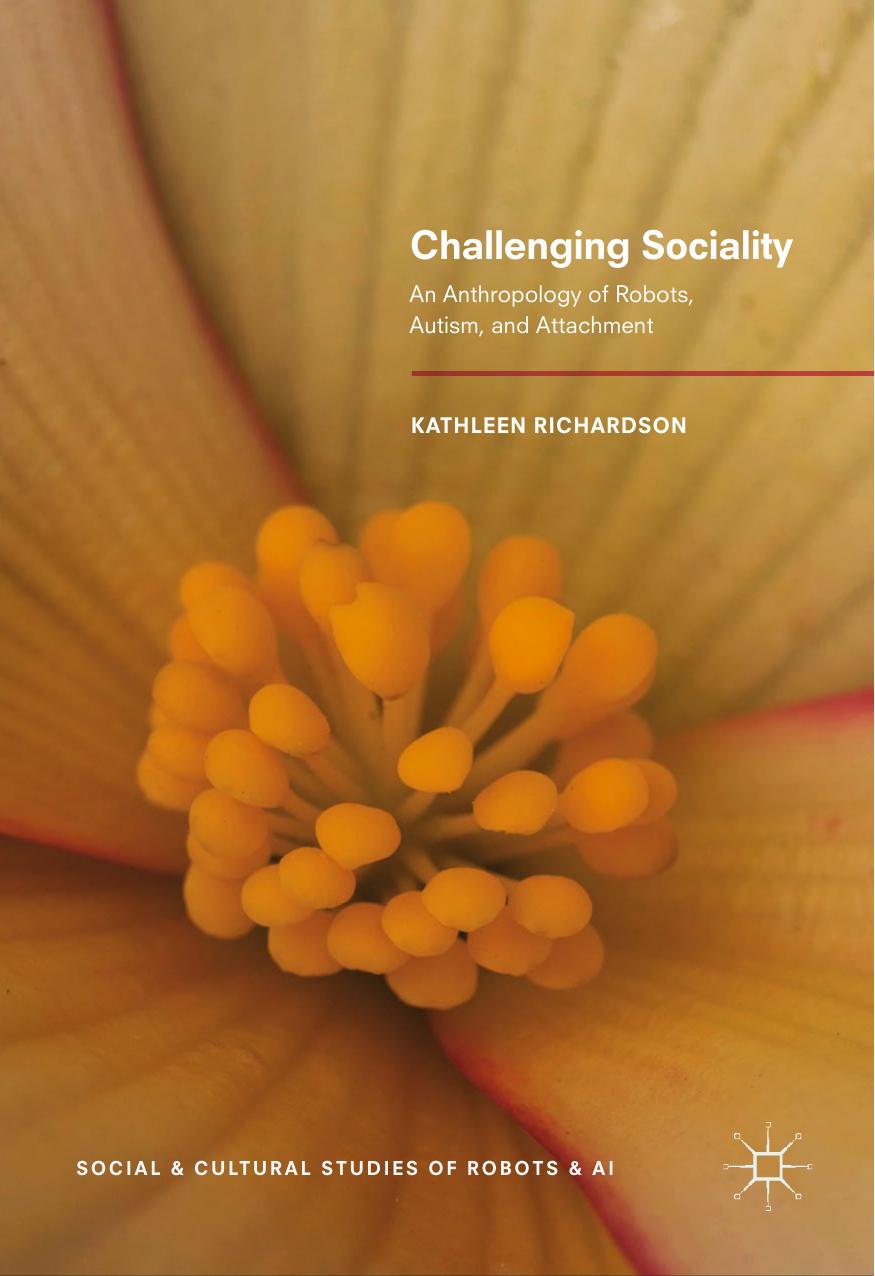Challenging Sociality by Kathleen Richardson

Author:Kathleen Richardson
Language: eng
Format: epub, pdf
Publisher: Springer International Publishing, Cham
Me Understanding Others
Others Understanding Me. (p. 226)
Robinson describes these as interrelated and iterative. Robinson emphasises the importance of ‘autistic spaces’, where autistic people can come together and explore their autism—a theme explored by Rosqvist et al. (2015). For friendship, self-awareness and awareness of others to develop fully, autistic adults must have spaces in which they can be as they are without ‘professionals’ trying to fix them or pathologise their behaviours. Robinson’s work involves coming alongside and developing alongside autistic adults. Autism acceptance is important.
Groups that are designed to support autistic young people and adults and provide a non-threatening and accepting environment are extremely beneficial to help independence and self-acceptance. I have also found this to be the case during my own time spent with adults with Asperger’s and the most popular group activity was ‘social skills’. The young adults enjoyed learning about social interaction. Several group members told me about their difficulties making friends at school and being bullied. John and Cat had told me they did ‘not fit in at school’ among their peers and felt lonely and distressed. The group gave them an opportunity to meet like-minded people and have fun. Sometimes adults might also say they are not interested in friendship or close relationship as a self-defence strategy. Another example of these supportive environments is the pioneering People who Hear Voices 7 networks that bring people together to discuss the hearing of voices, and explore what these voices mean.
Psychodramatist, John Casson (2004) works with people who hear voices by using drama as a way of engaging people with psychosis. He has worked with adults with severe psychosis, primarily schizophrenia, using psychodramatic techniques to explore their voices. Adults that gained more awareness over their voices were able to engage with the voices, to dialogue with them. Adults who hear voices and present these symptoms to a medical doctor will be referred to a psychiatrist and applied a label . The psychiatrist’s primary goal, using medications such as Lithium, a powerful drug, is to stop the person from hearing voices. Psychodrama and other humanistic approaches to human suffering try to engage with what the human being is actually experiencing and support the person in developing self-awareness over their inner dialogues .
Drama as a therapeutic form provides a means for people to explore their alterity or difference and push the limits of their everyday realities. The power of theatre was also known to the ancients; the first theatres were built next to temples because of the respect for the transcendental nature of theatrical experience. It is no surprise that the ancient Greek theatre of Dionysus Eleuthereus was used for festivals in honour of the god Dionysus. In some theatre styles, the actor leaves herself to be temporarily Other in a performance for an audience. The audience must also participate in this Otherness by buying into the performance, suspending reality. The performance is liminal, but the action and experience of that action by actors and audience is located in time, space and place.
Download
This site does not store any files on its server. We only index and link to content provided by other sites. Please contact the content providers to delete copyright contents if any and email us, we'll remove relevant links or contents immediately.
Algorithms of the Intelligent Web by Haralambos Marmanis;Dmitry Babenko(17576)
Jquery UI in Action : Master the concepts Of Jquery UI: A Step By Step Approach by ANMOL GOYAL(10029)
Test-Driven Development with Java by Alan Mellor(7751)
Data Augmentation with Python by Duc Haba(7626)
Principles of Data Fabric by Sonia Mezzetta(7398)
Learn Blender Simulations the Right Way by Stephen Pearson(7307)
Microservices with Spring Boot 3 and Spring Cloud by Magnus Larsson(7156)
Hadoop in Practice by Alex Holmes(6696)
RPA Solution Architect's Handbook by Sachin Sahgal(6532)
The Infinite Retina by Robert Scoble Irena Cronin(6235)
Big Data Analysis with Python by Ivan Marin(5959)
Life 3.0: Being Human in the Age of Artificial Intelligence by Tegmark Max(5541)
Pretrain Vision and Large Language Models in Python by Emily Webber(4915)
Infrastructure as Code for Beginners by Russ McKendrick(4673)
Functional Programming in JavaScript by Mantyla Dan(4508)
WordPress Plugin Development Cookbook by Yannick Lefebvre(4406)
The Age of Surveillance Capitalism by Shoshana Zuboff(4272)
Embracing Microservices Design by Ovais Mehboob Ahmed Khan Nabil Siddiqui and Timothy Oleson(4163)
Applied Machine Learning for Healthcare and Life Sciences Using AWS by Ujjwal Ratan(4153)
